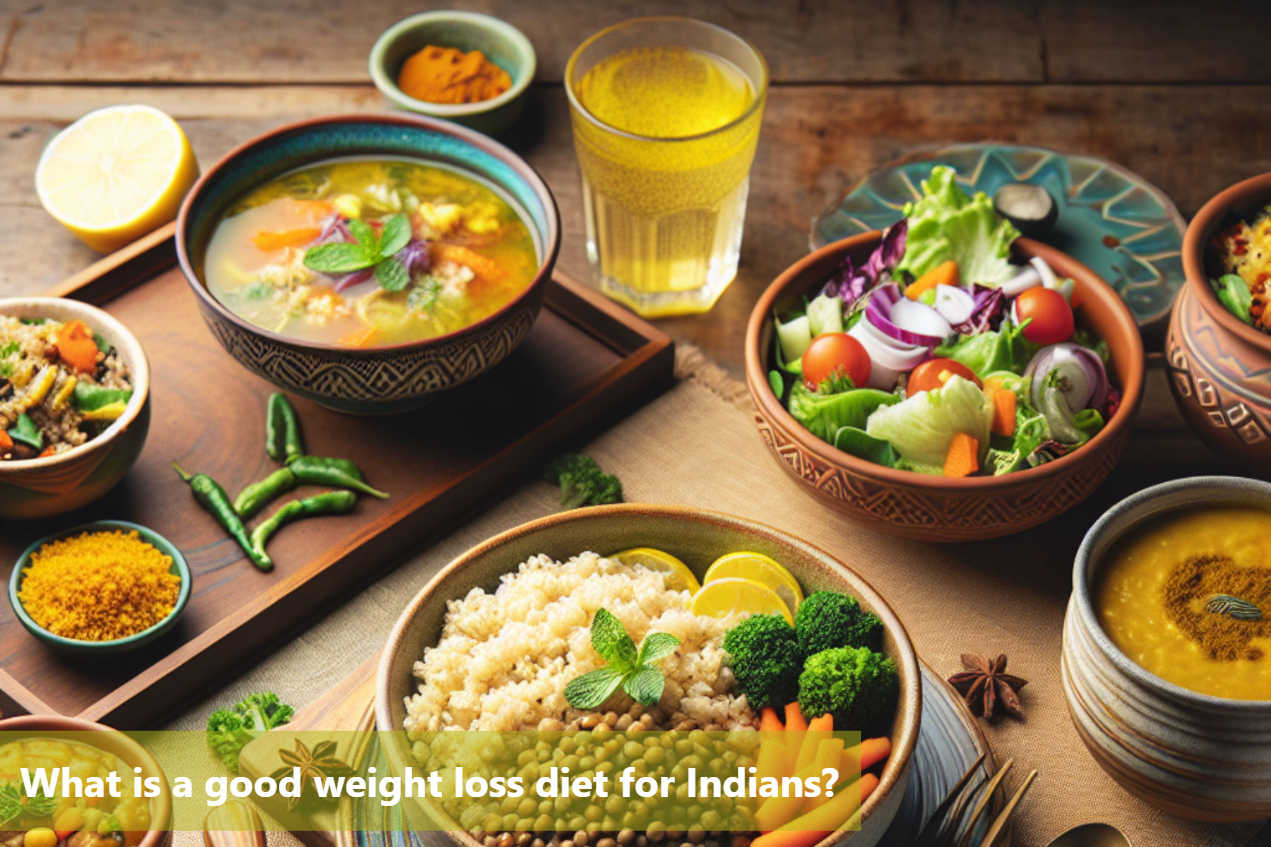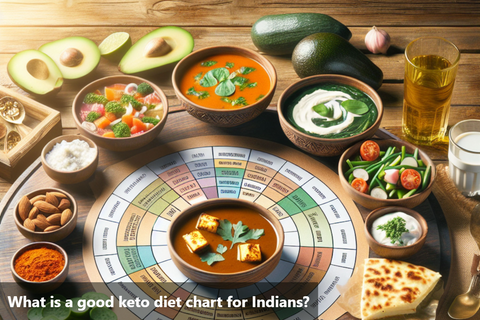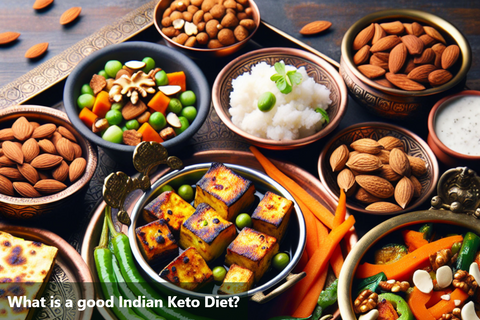
What is a good weight loss diet for Indians?
The Indian diet is diverse, rich in flavors, and deeply rooted in cultural traditions, making it both unique and challenging when aiming for weight loss. Most Indian dishes content high carb content if not regularly monitored and thus, it becomes more imperative to navigate through the ingredients and dishes cautiously. Our dietary choices are often influenced by cultural practices, festivals, and regional cuisines, leading to the need for a tailored approach to weight management.
The significance of incorporating an Indian weight loss diet lies in promoting sustainable lifestyle changes while respecting cultural preferences. By embracing traditional foods like fruits, vegetables, lentils, and whole grains, individuals can strike a balance between heritage and health.
Embarking on a weight loss journey tailored to Indian dietary practices requires mindfulness, education, and a positive attitude towards embracing healthier alternatives. By acknowledging the intersection of food, culture, and health, individuals can embark on a path towards holistic well-being and long-term weight management success.

Traditional Indian Diet vs. Modern Diet Trends
The traditional Indian diet has long been revered for its emphasis on wholesome, nutrient-rich foods such as fruits, vegetables, pulses, and whole grains. These staples not only provide essential vitamins and minerals but also fiber, which aids digestion and promotes a feeling of fullness.
On the other hand, modern diet trends have witnessed a shift towards processed foods laden with unhealthy fats, refined sugars, and excessive salt. These items, while convenient and easy for snacking preferences, often lack the nutritional value required for a balanced diet and can contribute to weight gain and various health issues.
When comparing the Indian weight loss diet with modern dietary habits, it becomes evident that the former holds a significant advantage in terms of promoting overall well-being and sustainable weight management. Making informed choices and embracing the traditional Indian diet can be a crucial step towards achieving your weight loss objectives.
Key Components of a Weight Loss Diet for Indians
Incorporating a suitable weight loss diet is essential for individuals, particularly Indians, aiming to achieve their health goals. When crafting an Indian weight loss diet plan, several key components play a vital role in promoting effective weight management and overall well-being.
- Firstly, focusing on fiber-rich foods is crucial. Incorporating ample amounts of fruits, vegetables, whole grains, and legumes not only aids in digestion but also provides a sense of fullness, reducing the tendency to overeat.
- Limiting the intake of sugar and refined carbohydrates is another important aspect of a successful weight loss diet for Indians. Opting for healthier alternatives and natural sweeteners can help stabilize blood sugar levels and prevent unnecessary calorie consumption.
- Moreover, increasing protein intake is beneficial for muscle maintenance and boosting metabolism. Including sources like lentils, beans, dairy, lean meats, and nuts can support weight loss efforts.
- Lastly, incorporating healthy fats such as nuts, seeds, avocado, and olive oil is essential for overall health and satiety. Healthy fats provide energy and promote nutrient absorption, contributing to a well-rounded weight loss diet for individuals following an Indian meal plan.
By focusing on these key components, individuals can create a balanced and sustainable weight loss diet tailored to Indian dietary preferences, ultimately leading to successful outcomes.

Sample Indian Weight Loss Meal Plan
- Start your day with a nutritious breakfast, such as a bowl of oats topped with fruits like mango or papaya. Opt for a cup of green tea to kickstart your metabolism.
- For lunch, enjoy a balanced meal of roti, dal, sabzi (vegetables), and a side of curd or raita. Include whole wheat rotis and a variety of colorful vegetables for essential nutrients.
- As an afternoon snack, indulge in a handful of mixed nuts like almonds and walnuts, or munch on roasted foxnuts (makhana) seasoned with spices for a crunchy treat.
- Dinner can consist of grilled fish or paneer tikka paired with a generous salad of cucumber, tomatoes, and lettuce drizzled with lemon juice. Keep the portion size moderate for a light yet satisfying meal.
- Stay hydrated throughout the day by sipping on water, coconut water, or herbal teas to keep cravings at bay and aid digestion.
- Make sure to incorporate spices like turmeric, cumin, and coriander in your meals for their antioxidant and anti-inflammatory properties, enhancing both flavor and health benefits.
Remember, portion control and mindful eating are key to successful weight loss. Listen to your body's hunger cues and enjoy your meals without distractions.
The journey towards adopting a healthier lifestyle through an Indian weight loss diet has been gaining significant popularity owing to the generational shift to adopt a healthier lifestyle, combined with the tasty Indian delicacies. By understanding the significance of incorporating traditional Indian dietary practices into modern weight loss approaches, we pave the way for sustainable and effective results.
It is paramount to recognize that a balanced weight loss diet tailored to Indian dietary norms is not merely a trend but a lifestyle choice with long-term benefits. By embracing our cultural heritage and making mindful food choices, we not only achieve our weight loss goals but also nurture our bodies with the nourishment they deserve.
This Blog post is an initiative by Lo! Foods, to provide accurate and Nutritionist / Doctor approved information related to Health. Lo! Foods is India's leading brand for Everyday Functional Foods. Foods designed for specific Health conditions or Needs. Lo! Foods also runs India's largest range of Low Carb Healthy Cloud Kitchens, under the brand names of Lo!, ProteinChef, ATH (All Things Healthy) and DiabeSmart.















Leave a comment
Your email address will not be published.